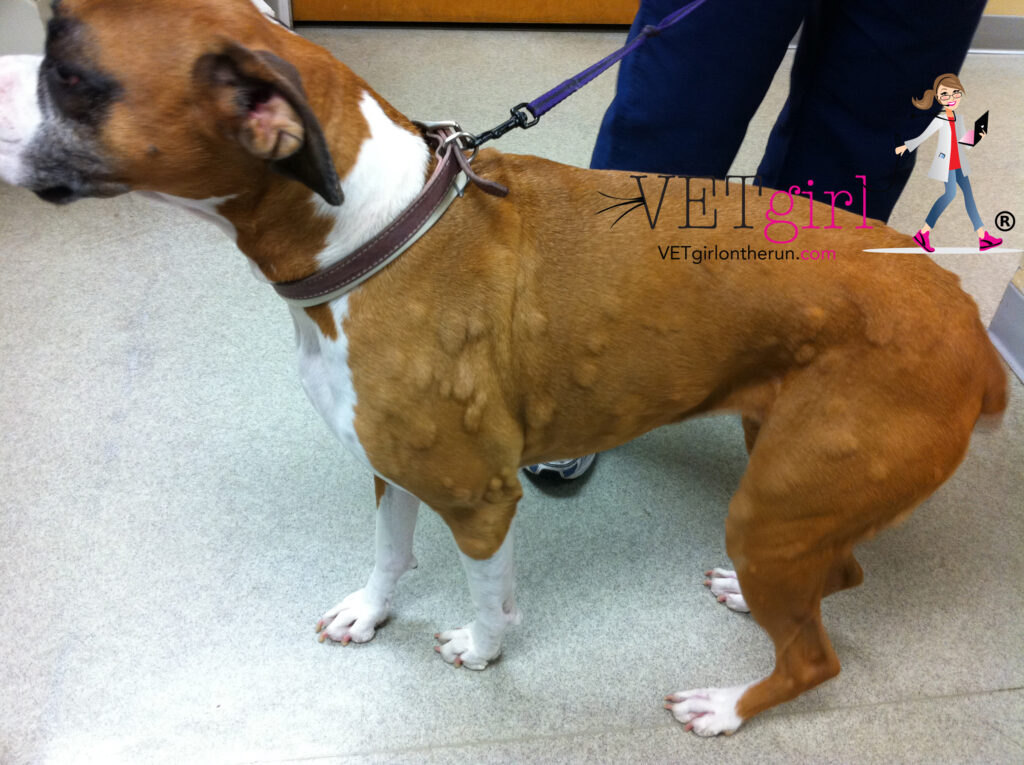
Side Effects Of Allergic Reaction To Vaccine In Dogs. Great danes German shepherds Dobermans Detrievers and Weimaraners are examples of breeds that may be affected by this condition. This shows the most common side effects that people in New Zealand experience after getting the COVID-19 vaccine. An allergic reaction is an aberrant response to the vaccination or rather an over-reaction to the vaccine. A veterinarian will often give dogs with this reaction an antihistamine injection.

Redness mild swelling and tenderness at the vaccination site Decreased activity levels fatigue. It appears to occur in Weimaraners as a vaccine reaction and this may also affect Mastiffs and Great Danes. The canine adenovirus -2 can make your dog lose his appetite for a. A veterinarian will often give dogs with this reaction an antihistamine injection. Side effects can include mild fever mild loss of appetite and mild to moderate loss of energy for 24 to 36 hours after vaccination. Swelling anywhere on the body.
Autoimmune hemolytic anemia AIHA has been reported in dogs vaccinated with modified live multiple antigen vaccines particularly parvo.
The aluminum in vaccines also causes an up-regulation of IgE which is the allergy immunoglobulin. The canine adenovirus -2 can make your dog lose his appetite for a. The aluminum in vaccines also causes an up-regulation of IgE which is the allergy immunoglobulin. Great danes German shepherds Dobermans Detrievers and Weimaraners are examples of breeds that may be affected by this condition. Puffiness may be noted especially around the eyes muzzle and ears. A little known and often misdiagnosed reaction to the rabies vaccine in dogs this problem may develop near or over the vaccine administration site and around the vaccine material that was injected or as a more widespread reaction.